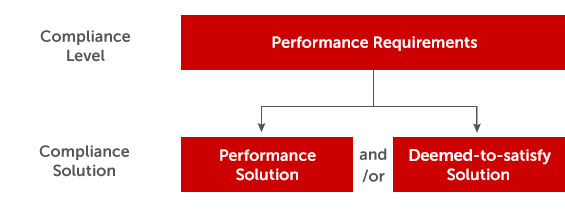Chapter 8 What is the performance-based Building Code?
The BCA is a performance-based code which contains the ‘Performance Requirements’ for the construction of buildings.
The performance requirements are the minimum level of performance that buildings and building elements must meet.
The advantages of a performance-based BCA are seen as allowing cost savings in building construction by:
- permitting the use of alternative materials, forms of construction or designs to meet the prescriptive requirements;
- the innovative use of materials, forms of construction or designs;
- permitting designs to be tailored to a particular building;
- giving clear information on what the BCA is trying to achieve; and
- allowing the designer flexibility in the use of materials, forms of construction or design, provided that the intent of the BCA is met (in other words, allow for flexibility provided the performance required by the BCA is met), while still allowing acceptable existing building practices through the deemed-to-satisfy provisions.
Structure of the performance-based BCA
The structure of the operative provisions of the BCA are shown below:

The performance requirements are also supported by general requirements.
General requirements include matters which cover the BCA’s interpretation, reference documents, the acceptance of design and construction (including related evidence of suitability/documentation) and the classification of buildings within the NCC.
